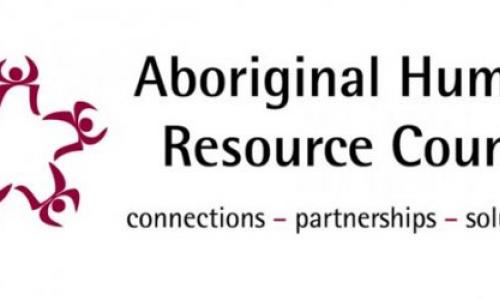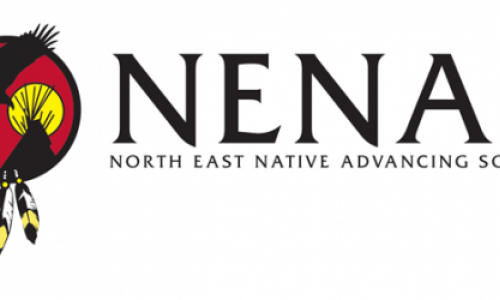
As I approach the end of my undergraduate studies, I am faced with the prospect of leaving the comfort of SFU and entering into the professional world, the scary, professional world. I am confident in my abilities as a student. I know what I am doing here, I have mastered the art of academic writing and my confidence at school is reflected in the rest of my life. But after school, after the work is done, and the assignments are submitted and the exams completed and the degree is framed on the wall, then what? I have no idea who I am or how I will compare to others in the ‘real’ world. As Indigenous students who are transitioning into the workforce, there may be other barriers we face as well, that being cultural difference that continue to be misunderstood by many, specifically by employers.
I recall a story I heard a few years ago. We were talking about cultural differences and the story was about a Cree man who had been hired at an advertising firm. The advertising team at this company was having a meeting to throw out marketing ideas for a new client. The meeting was high energy, everyone showing a lot of enthusiasm as each of the meeting attendees shouted out their ideas. One person would offer up an idea while another person would quickly piggyback off that idea. The ideas were flowing for everyone. The only person who remained quiet was the Cree man, Albert, we’ll call him. When the meeting was over, the team leader approached Albert and told him that if he was to succeed at this job, he needed to come with ideas. This occurred many times but Albert always remained quiet. The day finally came when the team leader asked Albert into his office and told him that he didn’t think the job was a match for Albert, as Albert didn’t seem interested in participating and wasn’t coming into work prepared. When the team leader asked Albert why he chose not to participate, Albert said, “I always have many ideas, but I have been taught not to speak when someone else is speaking, so when I am in the meetings I’m just waiting for everyone else to shut up.”
Of course I have paraphrased a little, but the moral is the same. There are cultural differences between us that can often be misunderstood and affect our success in our chosen profession. An article in the Globe and Mail, entitled, 5 Tips for Women in the Workplace, gave a few excellent pieces of advice for those of us moving onto a career. Please men, don’t dismiss this yet. These tips are good for anyone who is first joining the workforce and I hope they give you some insight into some of the attributes necessary for professional success in the Western world. I have changed some of the wording to be more inclusive.
*As published in the Globe and Mail
1. Don't Accept the First Offer You Get - Negotiate Your Pay Package
Some of us are afraid to negotiate pay and many more simply don’t think to ask for more. Consider this: by simply accepting an offer as presented, and not negotiating for a better compensation package, we stand to lose up to $1-million or more over the course of your career.
We can help ward off the anxiety of negotiating pay by arming ourselves with information. Research the current market value for the job you want. Third-party compensation information will give a good indication of a job’s value. Some great sources include payscale.com, salary.com and glassdoor.com. Use this information as a baseline. Then assess your skills versus the requirements to determine your value in the job.
Very few professional-level jobs are compensated via salary alone. So, think in terms of a total compensation package. If you can’t get the salary you want, ask for a signing bonus, more vacation or some other work benefit. Many people are surprised at how easy it is to get more by simply asking.
2. Use Your Voice. Don’t Expect Your Work to Speak for Itself
Many of us are uncomfortable promoting ourselves. We may think, “If I just do a good job, someone will notice and the rewards will materialize.” Unfortunately, it seldom happens that way. If we’re not getting acknowledged and we don’t ask for the things we want, recognize that we may have lost our most important career asset – our voices! You were hired for a job because of your skills and talents. Don’t let these get minimized by not speaking up. Your ideas, contributions and achievements are yours to realize AND to highlight, no matter how uncomfortable it may be. Take steps to ensure your great work is visible to others – especially your boss. It’s not necessary to force conversations or to become an arrogant jerk. Simply take those natural opportunities to talk about the work you’re doing and what you’ve achieved.
3.Take Credit and Accept Praise
Some of us tend to deflect in situations where we may be elevated because we may be natural equalizers. Instead of accepting a compliment, we minimize it and blow it off. Unfortunately, this can be a huge disadvantage in the workplace. When you respond to praise or an acknowledgement by deflecting or giving credit to others, you give away your power. For example, your boss says, “Good job on that project.” You respond, “I had a great team. They really worked hard.” You think you’re being gracious, but you actually devalued your role and yourself. And, you may have left your boss questioning your contribution to the success of the project.
When you receive praise, own it! Simply say, “Thank you.” Or, take the opportunity to elaborate on your accomplishment. You can even acknowledge others, but do so in a way that doesn’t devalue your role, “I’m very proud of the results I achieved. The whole team did a great job on this project.”
4. Use Powerful Language
It’s not what we say; it’s how we say it. Some of us are often perceived as indecisive, ineffective or unsure of ourselves, simply because of the language we use and the way we speak. We fill in the details before getting to the point; we use more words, softer and more inclusive language; they have a tendency to speak in terms of “we” rather than “I.”
The ultimate challenge for some people is communicating in a way that enhances their credibility and capability, while being authentic and true to themselves. Here are some ways to strengthen how we communicate.
-
Be direct, lead with the bottom line first, then fill in the facts and details. Always have a strong close. The first and last things you say are the most remembered.
-
Don’t end what you say with a question (“What do you think?”). Instead, make a statement (“I’m interested in your feedback.”). By making a statement rather than asking a question, you retain control of the conversation and you’ll sound more confident.
-
Speak in clear, concise language. Eliminate the “umms, ahhs, uhhs and other fillers, it impacts your credibility and likability. It also makes it appear as if you’re unsure of what you’re saying. And let’s face it, the teenage “like speak” (“Hey, ummm, do you think, like, it’s cool to, like, do that?”) is just downright annoying.
-
Use silence to your advantage, especially in a negotiation. State your case, then wait for the other person to respond before you speak. The one who speaks first almost always loses the advantage.
5. Establish Your Boundaries and Stick to Them
When we’re just starting our careers or new in a job, it’s easy to get sucked in to the 24/7 chaos that often exists in companies – endless email at all hours, working weekends, always changing priorities, and countless new projects. Whether it’s a biological imperative or a socially ingrained behavior, some of us have trouble saying no and often don’t set boundaries because we don’t want to let anyone down. We like to please.
As a result, many of us frequently find ourselves in positions that are unmanageable because we try to be all things to all people. Bottom line, you can’t please everyone all the time. If you have to sell your soul to a job or company by compromising yourself, your integrity, or your family, it’s not worth it.
There are very few, if any, perfect companies and perfect jobs. It all comes down to what’s right for you. Know your priorities, set your boundaries, make smart choices, and ask for what you want. You’ll be surprised at how little resistance you get, the amount of respect you gain, and how much happier you can be.















